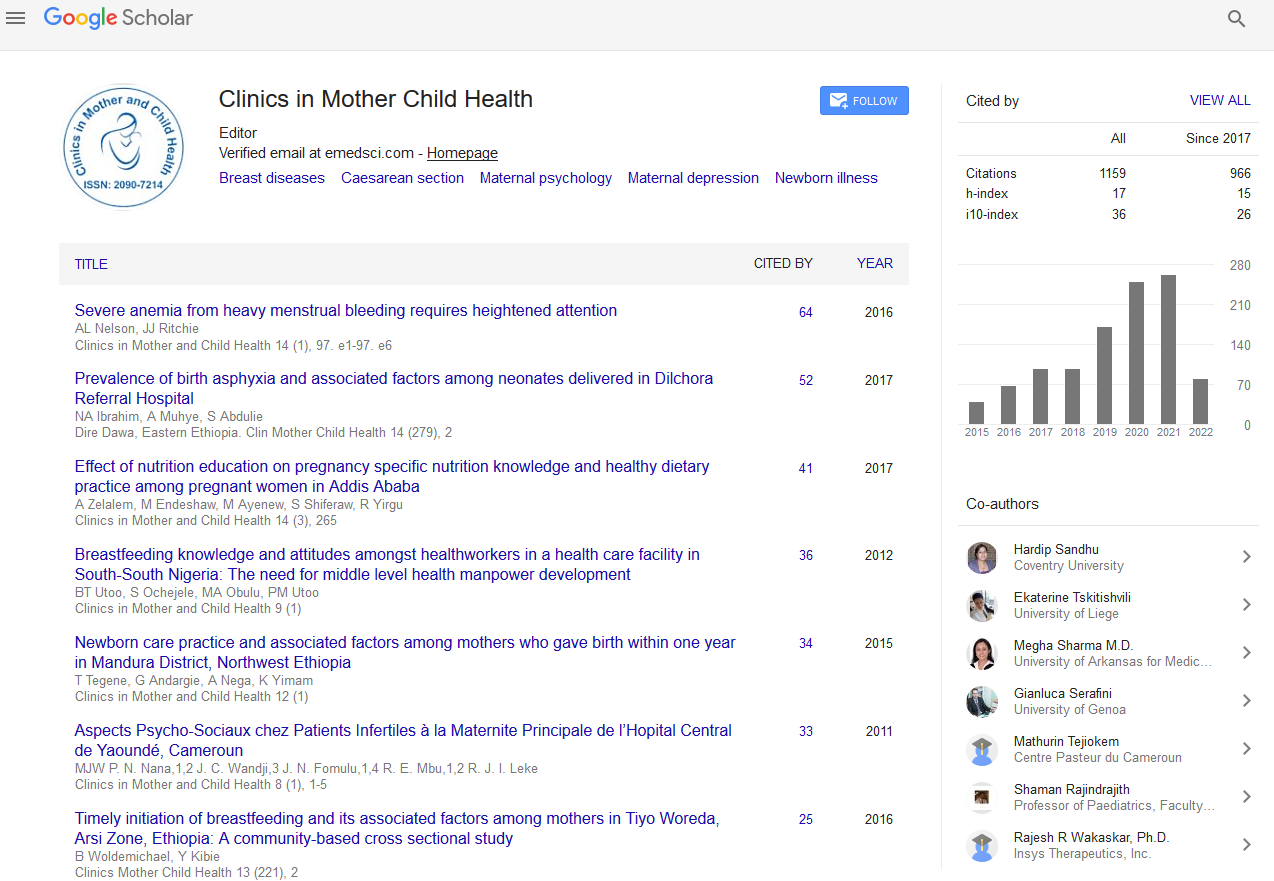Indexed In
- Genamics JournalSeek
- RefSeek
- Hamdard University
- EBSCO A-Z
- Publons
- Geneva Foundation for Medical Education and Research
- Euro Pub
- Google Scholar
Useful Links
Share This Page
Journal Flyer

Open Access Journals
- Agri and Aquaculture
- Biochemistry
- Bioinformatics & Systems Biology
- Business & Management
- Chemistry
- Clinical Sciences
- Engineering
- Food & Nutrition
- General Science
- Genetics & Molecular Biology
- Immunology & Microbiology
- Medical Sciences
- Neuroscience & Psychology
- Nursing & Health Care
- Pharmaceutical Sciences
Abstract
Congenital Malformations in Newborns of Mothers Affected by Epilepsy
Aim: To examine the effects of anti-epileptic drugs (AED) used during pregnancy on the frequency and the type of congenital malformations in newborns.
Methods: The study included 96 newborns, born by mothers affected by epilepsy (before the pregnancy). The control group consisted of 96 healthy newborns delivered by mothers.
Results: Almost all of the pregnant women used AED (98%) during the pregnancy. Monotherapy (Phenobarbiton) was used in 80% of women and 18% was used polytherapy, respectively. The pregnancy ended vaginal delivery in 54.4% of women, and in 45.5% of women, it is ended by cesarean section. Congenital malformations (palatoshisis and ventricular septal defect–VSD) were observed after births in 3 of newborn by means of detailed clinical and ehosonographic survey. Both pregnant women were on polytherapy (Phenobarbiton and Karbamazepin). Congenital malformations were not observed in the control group of newborns delivered by healthy mothers.
Conclusion: The use of AED in the form of monotherapy and avoiding of AED that have the teratogenic effect are recommended during the pregnancy. Mothers with epilepsy are free to continue with the breast feeding their newborns.


